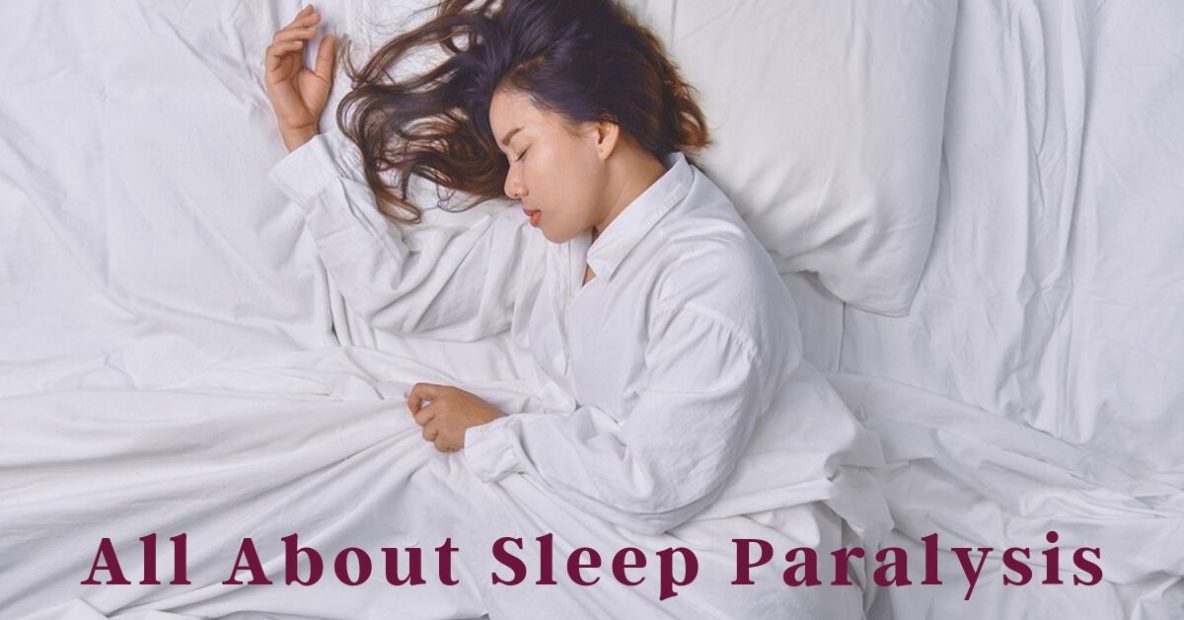All About Sleep Paralysis

- A Promising Paradigm Shift: New Research Challenges the CPAP-First Approach to OSA Treatment - September 5, 2023
- Understanding Sleep Meditation Techniques - July 30, 2021
- How Online Learning Has Affected Sleep for Students - July 13, 2021
Sleep paralysis can be a scary experience, and those who have sleep paralysis often find it disconcerting and uncomfortable. You’ve probably felt paralyzed in a dream before, and have felt unable to jump up, scream, or run away. Now imagine feeling that same feeling when you’re wide awake!
What is Sleep Paralysis?
Paralysis at night serves a very important function. It keeps you safe during sleep, and prevents your from thrashing around in your sleep, or rolling out of bed in response to a bad dream. During sleep, your muscles turn off and stop responding to the brain, so that responses triggered during REM sleep dreams don’t reach your body, and you won’t physically act out your dreams, or sleepwalk.
Sleep paralysis is the term used to describe a very frightening experience. When you’re in the stages between awake and asleep, either when you’re falling asleep at night or waking up in the morning, you may feel completely awake, but unable to move, open or close your eyes, or speak. This can be terrifying to experience, and you may see or hear things that aren’t really there, or have the sensation of being choked or having a very heavy weight on your chest.
What Causes Sleep Paralysis?
If you experience sleep paralysis as you fall asleep, there’s a disconnect between how relaxed your body is versus your mind. When your body becomes relaxed it stops responding to signals from your brain. This happens every night, but if your body relaxes very quickly, before your brain has relaxed fully, your mind will realize that it no longer has full control over your body, and you experience sleep paralysis.
If you experience sleep paralysis when you wake up, it’s once again caused by your body and brain being slightly out of sync. Your mind sometimes wakes up very suddenly, in response to an alarm or other noise in the environment, but your body is still in the middle of a REM cycle, where your body is unresponsive to your brain to prevent you from acting out your dreams. Your body is naturally the most relaxed and unable to move, and if your brain has woken up before your body, you may hyperventilate, hallucinate, and experience sleep paralysis.
Who Experiences Sleep Paralysis?
Luckily, sleep paralysis doesn’t do any harm to your body or your brain, and usually only lasts a few seconds. Sleep paralysis is common among people with narcolepsy, who fall into deep sleep very quickly, but it can also affect people with more normal sleep patterns. Those who suffer from a mental health issue like anxiety, panic disorder, PTSD, or depression also experience higher rates of sleep paralysis. It does affect adults, but is more common among children and teenagers. Sleep paralysis can also be caused by your sleep habits, and if you shift between sleep schedules often, or don’t have consistent sleep times, you’re more likely to have an episode of sleep paralysis.
Preventing Sleep Paralysis
Since sleep paralysis isn’t dangerous to your health, there is no set treatment method. However, there are a number of strategies you can use to reduce your risk of sleep paralysis, and reduce the frequency at which you experience paralysis. The fist thing to do is ensure you’re sleeping consistent hours, and are getting adequate sleep each night. Going to bed at the same time every night will help your body fall asleep gently and naturally, not rushing into sleep due to over exhaustion. Making sure you’re sleeping enough hours will also lower your chances of sleep paralysis, and you body and brain will relax together into sleep. Do you sleep on your back? Train yourself to sleep on your side, since most people report experiencing paralysis only when laying on their back. If you’ve experienced any changes in mood, or have any other mental health concerns, see a doctor to learn how this is affecting the quality of your sleep.
Sound Sleep Medical
Sleep paralysis is a scary experience, and if it’s become a normal part of your life, we want to help you find solutions to sleep comfortably, and stop experiencing paralysis when you fall asleep or when you wake up. Visit us today to talk about your sleep, and get tips on sleep hygiene and other steps you can take to sleep better.
